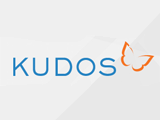
Kudos, a service that helps researchers increase the impact of their published articles, is today announcing the integration of Altmetric into its platform. The integration of altmetrics data, from Altmetric, means that Kudos users will now be able to track what people are saying about their papers online.
First piloted in September 2013, Kudos is a new service designed to help scholars and their institutions increase the impact of their published research articles. Altmetric tracks and collates mentions of research articles on social media, blogs, news outlets and other online sources. This integration means mentions are now incorporated on the Kudos metrics pages for individual authors, and accompanied by a short summary which further details the number of mentions per source. Each article is assigned a score based on the amount of attention it has received to date, and authors are able to click through to see a sample of the original mentions of their article.
David Sommer, co-founder of Kudos, commented: “We’re delighted to be formalising our relationship with Altmetric. Together with views, downloads and citations, authors can get a complete picture of the effectiveness of their usage of the Kudos tools to increase the impact of their publications. In our pilot phase, run over 14 weeks at the end of 2013, researchers using the Kudos sharing tools achieved on average 19% higher usage for their work than those in our control group. We’re excited to see how we can build on this to help research articles get more widely read, cited and talked about.”
Euan Adie, founder of Altmetric, added: “As alternative metrics continue to develop and become a more widely acknowledged measure of online attention, this integration makes it easy for authors to gain a better understanding of how and where their articles are being shared and discussed. With the alpha testing stage of the Kudos service delivering promising levels of engagement amongst academics, the need to maximise and track the dissemination of an article in an increasingly online space clearly remains a core challenge of the research cycle. We are pleased to be working together to address these obstacles, and look forward to future progressions.”

























